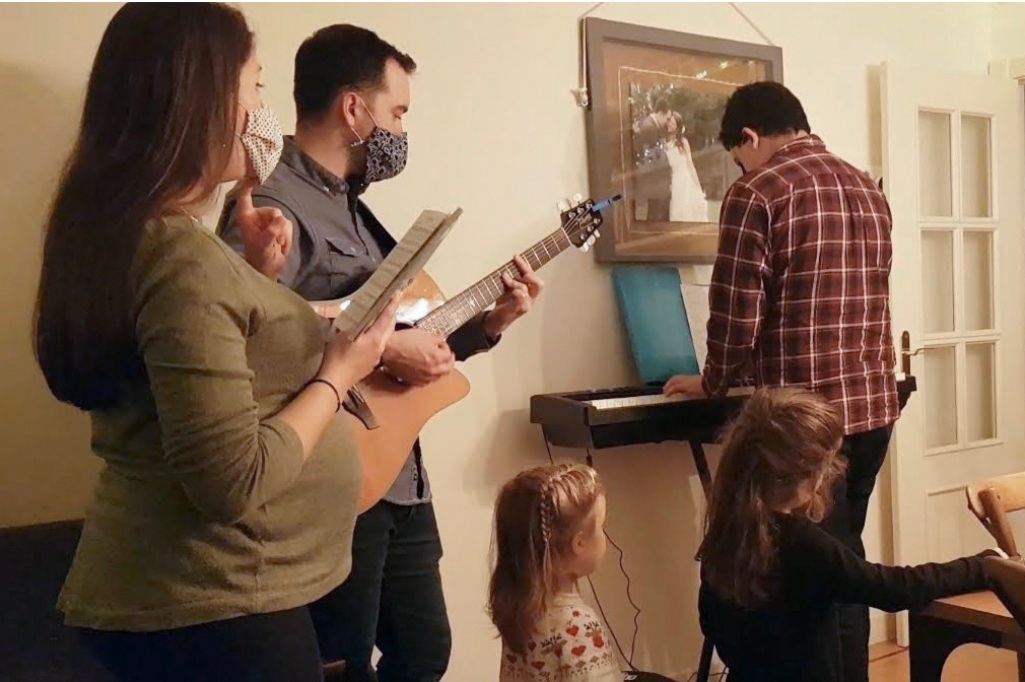The U.S. Supreme Court refused Dec. 13 to block enforcement of a vaccine mandate for New York health care workers who contend it violates their religious freedom.
The high court denied without comment two requests for an injunction halting the administration of the COVID-19 vaccine requirement while the lawsuits proceed through the courts. Three members of the court – associate justices Clarence Thomas, Samuel Alito and Neil Gorsuch – disagreed. In response to one order, Gorsuch wrote a 14-page dissenting opinion, which was joined by Alito.
The justices also refused to grant an injunction in late October to health care workers seeking a religious exemption from Maine’s vaccine mandate. Thomas, Alito and Gorsuch dissented from their fellow justices in that order as well.
Brent Leatherwood, president of the Southern Baptist Ethics & Religious Liberty Commission (ERLC), said these actions make it “abundantly clear the court is cautious about weighing in on these types of challenges through the ‘shadow docket,’ which forces the justices to make an expedited review of a case without the benefit of a full briefing on the matter and oral arguments about the issue at hand.”
“Whether one agrees with that posture or not, that is just where the court is at this point,” Leatherwood said in written comments. “So, while lower courts will continue to suss through various challenges, it is incumbent upon all elected officials to redouble their efforts to provide clear information about the vaccines and seek out partnerships with local leaders who can help communicate this to the communities they serve.
“In doing so, individuals will be invited to be part of the solution for ending this terrible plague without being marginalized by the government.”
The vaccine mandate initially included both religious and medical exemptions when it was proposed in mid-August. Gov. Andrew Cuomo had promised the exceptions, but a revised mandate excluded the religious exemption when issued Aug. 23, a day before Lt. Gov. Kathy Hochul replaced Cuomo. She ascended to the office when Cuomo resigned after the state’s attorney general reported the governor had sexually harassed several women, including government employees.
In mid-September, Hochul said the state health department of her administration had intentionally excluded a religious exemption. “I’m not aware of a sanctioned religious exemption from any organized religion, in fact, they are encouraging the opposite,” Hochul said, according to a report by a New York State Public Radio correspondent. “Everybody from the pope on down is encouraging people to get vaccinated.”
Later, the governor announced health care workers who disobeyed the mandate would be ineligible for unemployment insurance benefits in addition to losing their jobs.
The health care workers who sought an injunction from the Supreme Court after the Second Circuit Court of Appeals in New York rejected their request said they refuse to accept the vaccine because of their religious beliefs in opposition to abortion. They object because the currently approved COVID-19 vaccines have used decades-old, abortion-derived cell lines in their production or testing.
The Pfizer and Moderna vaccines used abortion-derived cell lines in some of their testing, while the Johnson & Johnson vaccine used such cell lines in both production and testing, according to the Charlotte Lozier Institute, a pro-life, research organization.
The ERLC and other pro-life organizations, as well as at least some pro-life ethicists, have said receiving the vaccines is ethically acceptable. Christians “are not morally culpable if they use treatments and vaccines that were developed using” cells derived from an abortion in the 1970s, according to a December 2020 post by the ERLC.
In his dissent, Gorsuch wrote it “is clear” the health care workers seeking a religious exemption “are likely to succeed on the merits” of their claim the mandate violates their First Amendment right to exercise their religion freely.
The Supreme Court’s denial of an injunction repeats the same mistake it made in the Maine case about six weeks before, Gorsuch said.
“We do all this even though the State’s executive decree clearly interferes with the free exercise of religion – and does so seemingly based on nothing more than fear and anger at those who harbor unpopular religious beliefs,” he wrote. “[W]e should know the costs that come when this Court stands silent as majorities invade the constitutional rights of the unpopular and unorthodox.”
It appears, Gorsuch wrote, almost every other state “has found that it can satisfy its COVID-19 public health goals without coercing religious objectors to accept a vaccine.”
Christopher Ferrara – special counsel with the Thomas More Society, a pro-life, religious freedom organization – criticized the court’s order and said in a written statement, “One can only hope that, as the examples of this tyranny multiply and pile up on the Court’s doorstep, the majority will finally do what it did last year in striking down New York’s absurd church closures in the name of ‘public health’ – the right thing.”
In November 2020, the high court blocked size restrictions issued by Cuomo regarding religious services.
Americans United for Separation of Church and State commended the court’s action, however.
“Religious freedom is not a right to risk other people’s lives during a global pandemic that has already killed nearly 800,000 people in the U.S.,” said Rachel Laser, Americans United’s president. “These orders are in line with more than a century of court decisions that make clear the Constitution does not mandate religious exemptions from vaccination requirements.”
(EDITOR’S NOTE – Tom Strode is Washington bureau chief for Baptist Press.)


